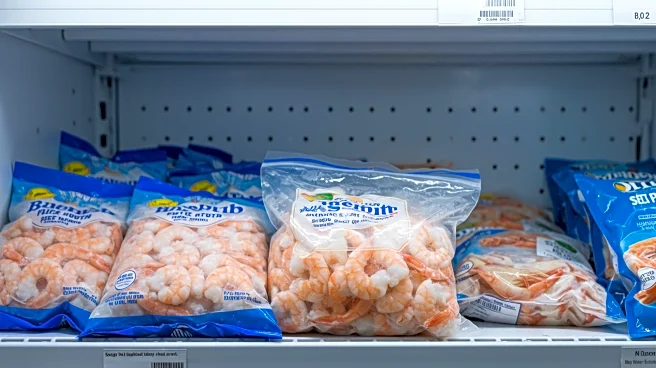What's Happening?
Southwind Foods, based in Carson, California, has issued a recall for several brands of frozen shrimp due to potential radioactive contamination. The U.S. Food and Drug Administration (FDA) announced that the affected shrimp, sold under brands such as Sand Bar, Arctic Shores, Best Yet, Great American, and First Street, were distributed to stores in multiple states including California, Alabama, and Arizona between July 17 and August 8. The recall follows the detection of Cesium-137, a radioactive material, in shipping containers and a sample of frozen breaded shrimp. This substance is a byproduct of nuclear activities and poses a cancer risk with long-term exposure. The FDA is investigating the contamination, which involves products processed by PT. Bahari Makmur Sejati in Indonesia. Consumers are advised not to consume the recalled shrimp and to return it for a refund.
Why It's Important?
The recall highlights significant concerns about food safety and the potential health risks associated with radioactive contamination. The presence of Cesium-137 in food products can lead to serious health implications, including an increased risk of cancer. This incident underscores the importance of stringent safety checks and regulations in the food supply chain, particularly for imported goods. The recall affects consumers across several states, potentially impacting public trust in food safety standards and the companies involved. It also raises questions about the oversight of imported food products and the measures in place to prevent such contamination.
What's Next?
The FDA's ongoing investigation will likely focus on identifying the source of the contamination and ensuring that all affected products are removed from the market. Southwind Foods and other companies involved may face increased scrutiny and pressure to enhance their safety protocols. Consumers and retailers will be monitoring the situation closely, and further recalls or safety advisories may be issued as more information becomes available. The incident may also prompt discussions on improving food safety regulations and the monitoring of imported goods.









